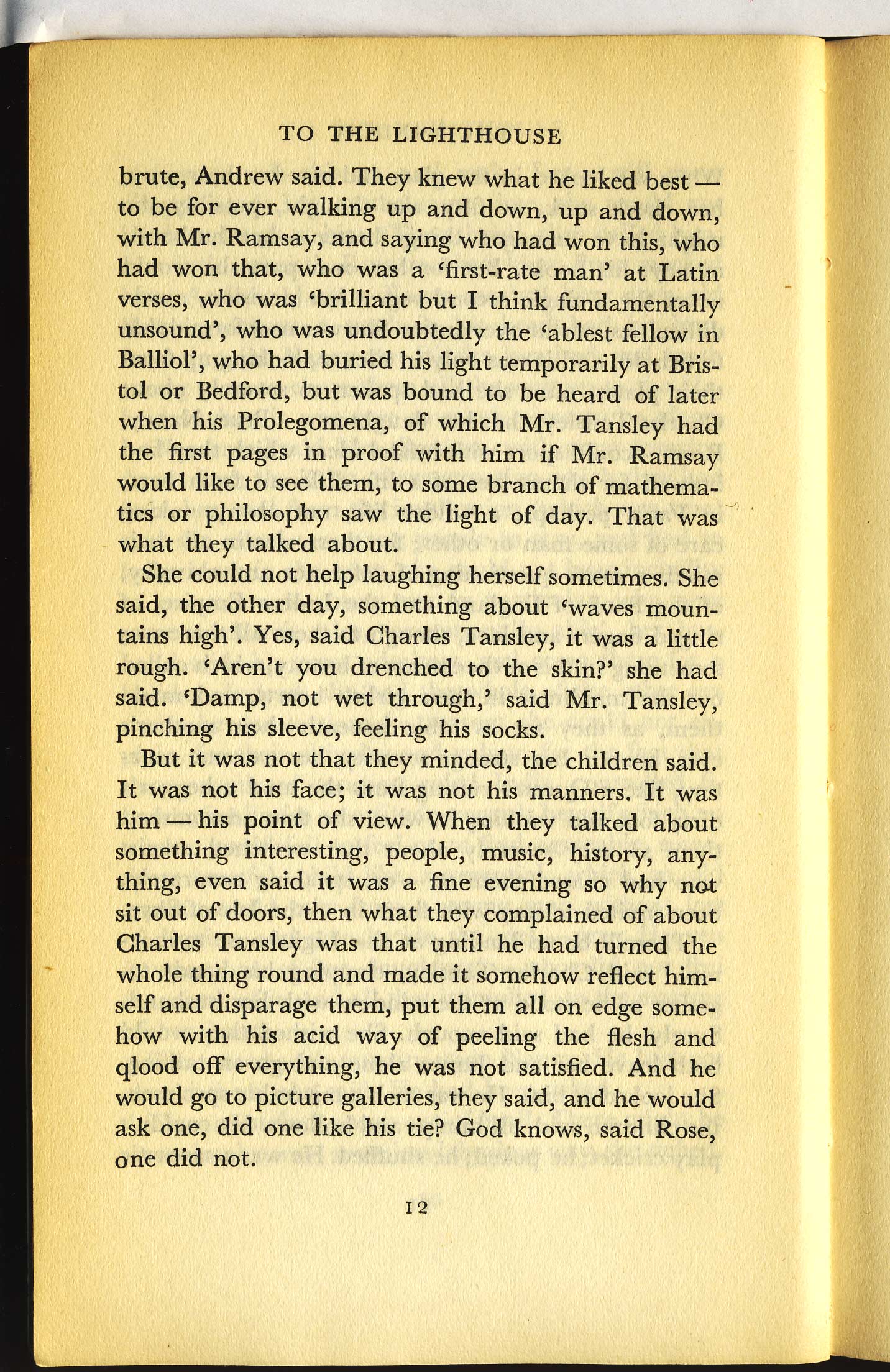
TO THE LIGHTHOUSEbrute, Andrew said. They knew what he liked best
ŌĆöto be for ever walking up and down, up and down,with Mr. Ramsay, and saying who had won this, whohad won that, who was a ŌĆśfirst-rate manŌĆÖ at Latinverses, who was ŌĆśbrilliant but I think fundamentallyunsoundŌĆÖ, who was undoubtedly the ŌĆśablest fellow inBalliolŌĆÖ, who had buried his light temporarily at Bris-tol or Bedford, but was bound to be heard of laterwhen his Prolegomena, of which Mr. Tansley hadthe first pages in proof with him if Mr. Ramsaywould like to see them, to some branch of mathema-tics or philosophy saw the light of day. That waswhat they talked about.She could not help laughing herself sometimes. Shesaid, the other day, something about ŌĆśwaves moun-tains highŌĆÖ. Yes, said Charles Tansley, it was a littlerough. ŌĆśArenŌĆÖt you drenched to the skin?ŌĆÖ she hadsaid. ŌĆśDamp, not wet through,ŌĆÖ said Mr. Tansley,pinching his sleeve, feeling his socks.But it was not that they minded, the children said.It was not his face; it was not his manners. It washim ŌĆö his point of view. When they talked aboutsomething interesting, people, music, history, any-thing, even said it was a fine evening so why notsit out of doors, then what they complained of aboutCharles Tansley was that until he had turned thewhole thing round and made it somehow reflect him-self and disparage them, put them all on edge some-how with his acid way of peeling the flesh andqlood off everything, he was not satisfied. And hewould go to picture galleries, they said, and he wouldask one, did one like his tie? God knows, said Rose,one did not.12









